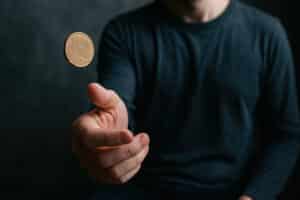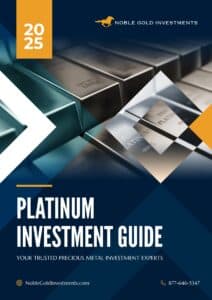Currency wars, also known as competitive devaluations, occur when countries deliberately weaken their currencies to gain economic advantages. These economic maneuvers can have far-reaching consequences, particularly for individuals planning for retirement.
As the world becomes increasingly interconnected, the financial decisions made by governments and central banks across the globe can ripple through economies, affecting everything from the cost of goods to the performance of investment portfolios. Keep reading to learn more about how currency wars can impact your retirement savings and strategies to protect your wealth.
Understanding Currency Wars
Currency wars arise when nations deliberately devalue their currencies, typically to boost exports and stimulate economic growth. When a country weakens its currency, its goods become less expensive for foreign buyers, making them more attractive and competitive in the global market. This can increase demand for their products, potentially driving job creation and economic expansion.
However, these actions often trigger retaliatory measures from other nations, creating a cycle of competitive devaluations. The motivations behind such strategies are complex, ranging from addressing trade imbalances to combating deflationary pressures. While the short-term benefits may include increased exports and economic stimulus, the long-term consequences can be severe, leading to economic instability and erosion of purchasing power for citizens.
Current Global Economic Climate
The current global economic landscape presents several factors that could potentially trigger currency wars. Ongoing trade tensions between major economies, divergent monetary policies among central banks, and the economic fallout from global events such as the COVID-19 pandemic have created an environment ripe for currency manipulation.
Central banks in various countries have implemented aggressive monetary policies, including near-zero or negative interest rates and large-scale asset purchase programs. Negative interest rates occur when central banks charge commercial banks for holding excess reserves, encouraging them to lend more and stimulate economic activity. While these measures aim to support economic recovery, they also have the potential to weaken currencies. As nations navigate the challenges of economic recovery and shifting global trade dynamics, the risk of competitive devaluations remains a concern for economists and investors alike.
Historical Examples of Currency Wars
One notable example of a currency war occurred during the Great Depression of the 1930s. Following the United Kingdom’s decision to abandon the gold standard in 1931, other countries followed suit, devaluing their currencies in an attempt to remain competitive. This period of competitive devaluations exacerbated global economic instability and contributed to the prolonged nature of the depression.
More recently, in the aftermath of the 2008 financial crisis, concerns about currency wars resurfaced. As major economies implemented quantitative easing programs to stimulate growth, some nations accused others of deliberately weakening their currencies to gain unfair trade advantages. These actions led to increased volatility in currency markets and uncertainty for investors, impacting the value of savings and investments for individuals around the world.
Impact of Currency Wars on Retirement Savings
Currency wars can have significant implications for retirement savings, affecting the value and stability of long-term investments. The ripple effects of these economic maneuvers can impact various aspects of retirement planning, from the purchasing power of savings to the performance of investment portfolios.
Erosion of Purchasing Power
One of the most direct impacts of currency wars on retirement savings is the potential erosion of purchasing power. When a currency is devalued, whether through intentional policy or as a result of economic pressures, it typically leads to inflation. This means that the same amount of money buys fewer goods and services over time.
For retirees or those planning for retirement, this erosion of purchasing power can be particularly problematic. Fixed-income investments, such as bonds or annuities, which are often a significant component of retirement portfolios, may not keep pace with inflation resulting from currency devaluation. As a result, the real value of retirement savings can diminish, potentially compromising the standard of living for retirees in the long term.
Volatility in Investment Markets
Currency wars can create significant volatility in stock and bond markets, posing risks to traditional retirement portfolios. When countries engage in competitive devaluations, it can lead to uncertainty in global financial markets, causing rapid fluctuations in asset prices.
For retirement savers heavily invested in stocks and bonds, this volatility can be concerning. Sudden market downturns can reduce the value of retirement portfolios, potentially forcing individuals to delay retirement or adjust their lifestyle expectations. Moreover, increased market volatility can make it challenging to accurately project long-term returns, complicating retirement planning efforts.
Impact on International Investments
Currency fluctuations resulting from currency wars can significantly affect the value of international investments within a retirement portfolio. When the value of a foreign currency declines relative to the investor’s home currency, the returns from investments denominated in that foreign currency may be reduced when converted back to the home currency.
Conversely, currency devaluations can also create opportunities for international investments. A weaker domestic currency can boost returns from foreign investments when they are converted back to the home currency. However, this potential benefit comes with increased risk and complexity, requiring careful consideration and management within a retirement portfolio.
Strategies to Protect Retirement Savings from Currency Wars
In the face of potential currency wars and their impacts, diversification and hedging strategies become crucial for protecting retirement savings. By implementing a range of approaches, investors can work to mitigate risks and preserve the value of their retirement portfolios over the long term.
Diversification Across Asset Classes
One of the most effective strategies for protecting retirement savings from the impacts of currency wars is diversification across various asset classes. By spreading investments across different types of assets, investors can reduce their exposure to risks associated with any single currency or market.
A well-diversified retirement portfolio might include a mix of domestic and international stocks, bonds, real estate investment trusts (REITs), and alternative investments. Each of these asset classes tends to respond differently to economic events, including currency fluctuations, potentially providing a balancing effect within the portfolio.
For example, during a hypothetical currency war scenario where the domestic currency is weakening, a portfolio with only domestic stocks might suffer. However, a diversified portfolio including international stocks, bonds, and real estate could potentially offset some of these losses. The international stocks might appreciate when converted back to the weakened domestic currency, while real estate and bonds could provide stability and income.
Precious Metals as a Hedge
Precious metals, particularly gold and silver, have long been considered effective hedges against currency devaluation and economic instability. During times of currency wars and economic uncertainty, these metals often retain or increase in value, making them attractive options for protecting retirement savings.
Historically, gold has demonstrated a tendency to move inversely to the U.S. dollar. When the dollar weakens, gold prices often rise, potentially offsetting losses in dollar-denominated assets. This characteristic makes gold a popular choice for investors seeking to diversify their portfolios and protect against currency risks.
Silver, while more volatile than gold, also offers potential benefits as a hedge against currency devaluation. Its industrial applications, combined with its role as a store of value, can provide diversification benefits within a retirement portfolio.
It’s important to note, however, that investing in precious metals also comes with certain risks. Their prices can be volatile, and they don’t provide income like stocks or bonds. Additionally, storage and insurance costs should be considered when investing in physical precious metals.
Currency-Hedged Investments
Currency-hedged investments offer another strategy for protecting retirement savings from exchange rate fluctuations. These investment vehicles use financial instruments to minimize the impact of currency movements on returns.
Currency-hedged mutual funds and exchange-traded funds (ETFs) provide exposure to international markets while aiming to neutralize the effects of currency fluctuations. This can be particularly beneficial for retirement savers looking to maintain international diversification without taking on excessive currency risk.
However, it’s important to consider that currency hedging comes with its own costs and complexities. While it can reduce the risk of losses due to unfavorable currency movements, it can also limit potential gains from favorable currency shifts. Additionally, the costs associated with hedging can impact overall returns. Therefore, the decision to use currency-hedged investments should be carefully evaluated within the context of an individual’s overall retirement strategy.
Long-Term Planning Considerations
When it comes to protecting retirement savings from the impacts of currency wars, long-term planning is essential. By taking a proactive approach and regularly reassessing strategies, investors can better position themselves to navigate the challenges posed by global economic shifts and currency fluctuations.
Regular Portfolio Review and Rebalancing
Regular review and rebalancing of retirement portfolios is crucial in maintaining an appropriate asset allocation in light of changing global economic conditions. As different assets perform differently over time, the original balance of a portfolio can shift, potentially exposing the investor to more risk than intended.
Experts generally recommend reviewing retirement portfolios at least annually or more frequently during periods of significant market volatility or major life changes. During these reviews, investors should assess whether their current asset allocation aligns with their risk tolerance and retirement goals, considering factors such as age, time horizon, and changes in the global economic landscape.
Rebalancing involves adjusting the portfolio back to its target allocation by selling assets that have become overweighted and buying those that have become underweighted. This disciplined approach helps maintain the desired level of diversification and can potentially improve long-term returns by systematically “buying low and selling high.”
As a general rule, consider rebalancing when any asset class deviates from its target allocation by 5% or more. For example, if your target allocation for stocks is 60% of your portfolio, you might consider rebalancing if stocks grow to represent 65% or more of your total portfolio value.
Staying Informed on Global Economic Trends
In an era of interconnected global markets, staying informed about global economic trends is crucial for effective retirement planning. Understanding how currency wars and other economic events might impact various asset classes can help investors make more informed decisions about their retirement savings strategies.
Reliable sources of information for global economic trends include reputable financial news outlets, reports from international organizations such as the International Monetary Fund (IMF) and the World Bank, and economic indicators published by government agencies. Key indicators to watch include inflation rates, interest rates, GDP growth, trade balances, and currency exchange rates.
It’s also beneficial to follow the policies and statements of major central banks, as their actions can significantly influence currency values and global economic conditions. While it’s not necessary to become an economic expert, having a basic understanding of these factors can help retirement savers better contextualize their investment decisions and anticipate potential risks to their portfolios.
The Role of Digital Currencies
In recent years, digital currencies, particularly cryptocurrencies like Bitcoin, have emerged as a new factor in the global currency landscape. While not directly controlled by any government, these digital assets can be influenced by and potentially influence traditional currency markets.
Some investors view cryptocurrencies as a potential hedge against currency devaluation, similar to gold. However, it’s important to note that cryptocurrencies are highly volatile and largely unregulated, making them a high-risk investment. While they may offer diversification benefits, they should be approached with caution, especially in the context of retirement savings.
Protect Your Retirement with Precious Metals
Currency wars and global economic instability can pose significant challenges to retirement savings, potentially eroding the value of traditional investment portfolios. However, by understanding these risks and implementing diversification strategies, individuals can work to protect their hard-earned savings and secure their financial future.
One effective way to hedge against the impacts of currency wars and economic uncertainty is through investments in precious metals. Noble Gold Investments offers investors a number of vehicles to diversify their retirement portfolios with gold, silver, platinum, and palladium. Our team of experts can guide you through the process of setting up a precious metals IRA or purchasing physical metals for home storage, providing a tangible asset that has historically served as a store of value during times of economic turmoil.
To learn more about how Noble Gold Investments can help you safeguard your retirement savings, contact us today at (877) 646-5347 or click here to open your account now.







